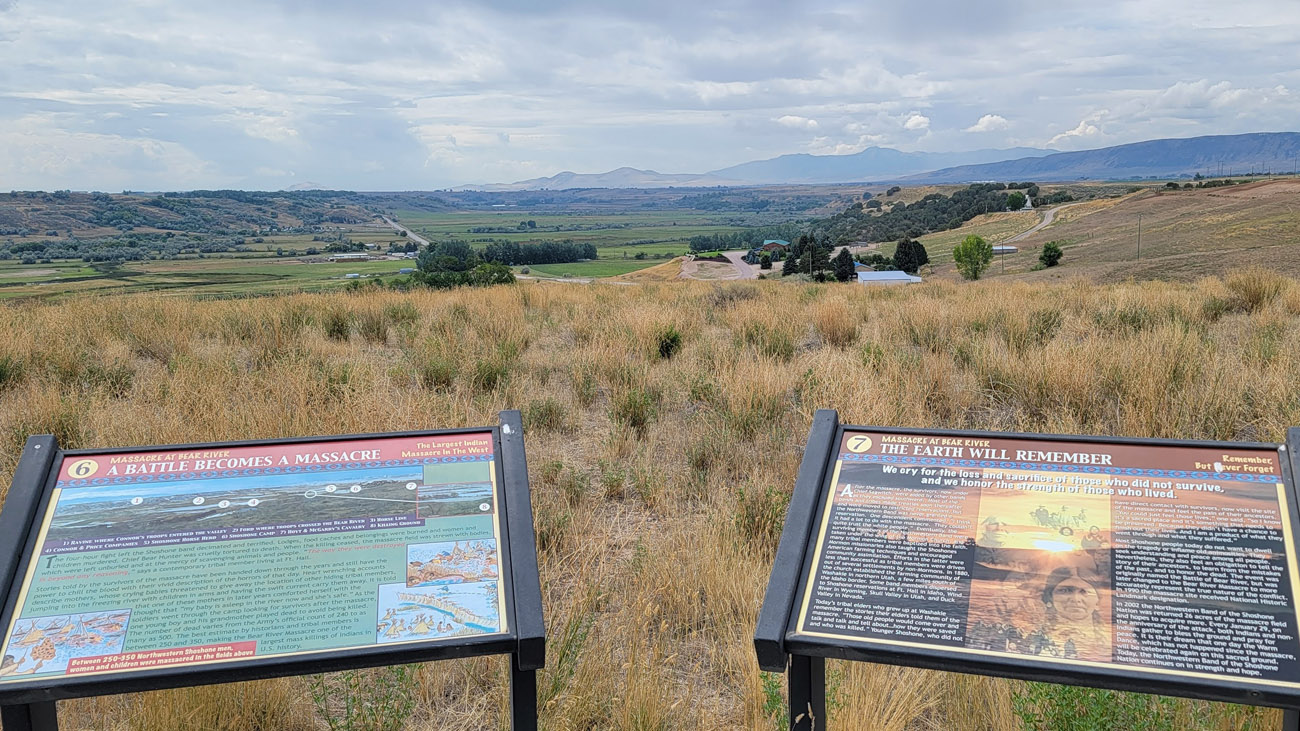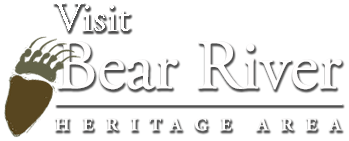
On January 29, 1863, Colonel Patrick E. Connor led a group of California Volunteers from Fort Douglas (Salt Lake City) in search of Shoshone Indians responsible for raids on settlers. The Indians had been pushed out of more and more of their lands in northern Utah, and some of them reacted by attacking settlers. In the early morning darkness, the soldiers attacked the winter camp of Chief Bear Hunter on Battle Creek, trapping them in the ravine, and slaughtered at least 250 men, women, and children. Native oral tradition says the amount is closer to 400 people.
It was the worst massacre of Native Americans in the West, but received little attention. For many years the only commemoration of the event was a few historical markers on US Highway 91 outside of Preston (pictured below.) The Northwestern Shoshone and Bannock tribes have now obtained their land for a permanent interpretive site, on the hill, overlooking the highway, where you can park and linger to read the interpretive panels and ponder the meaning of the event. The various markers show how the event has been remembered; first as a “battle,” and later as the massacre it was. Each January a group of natives and non-natives gather to commemorate the massacre. There are often items of remembrance such as feathers or little bundles of cloth left by visitors to the site. Please do not disturb these if you see them.
